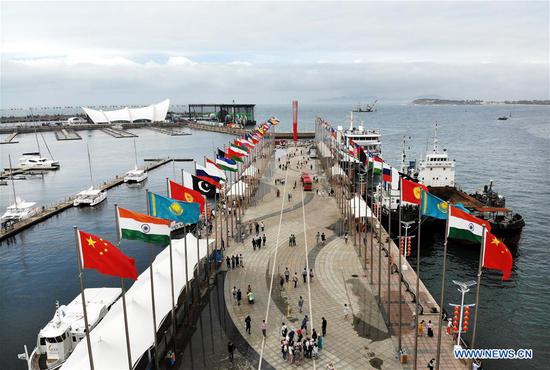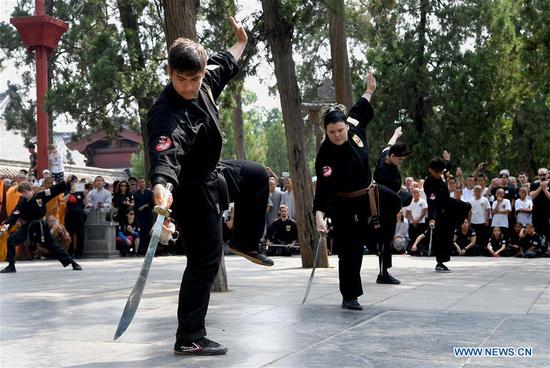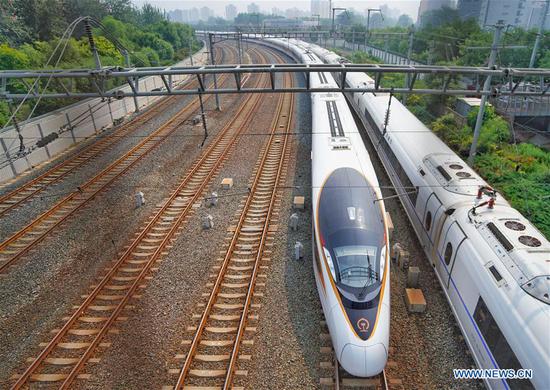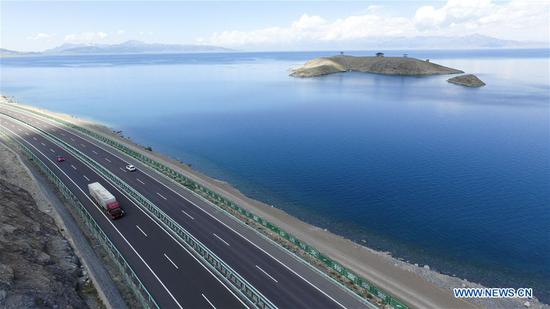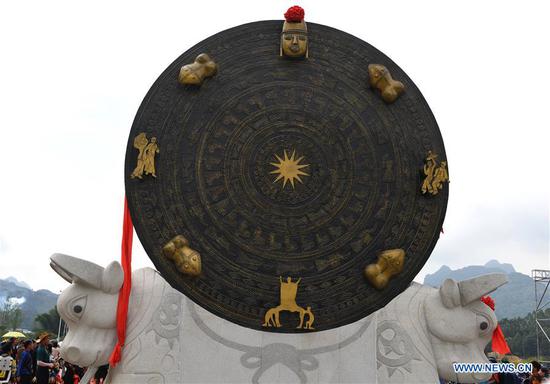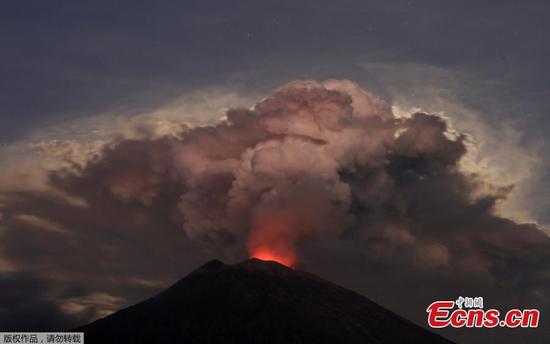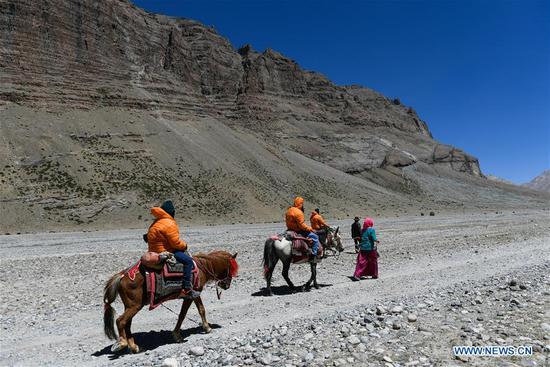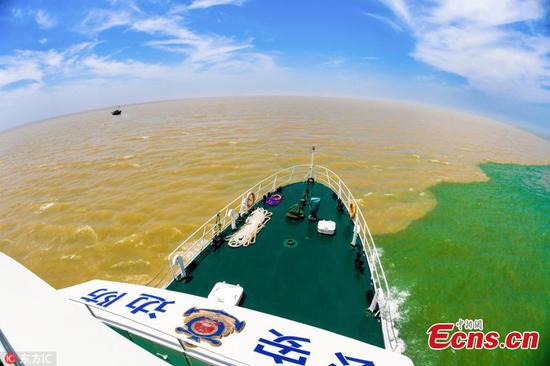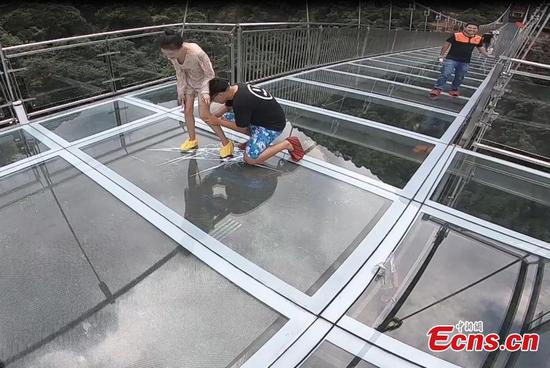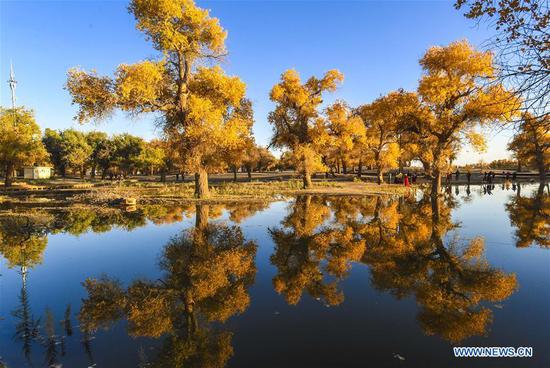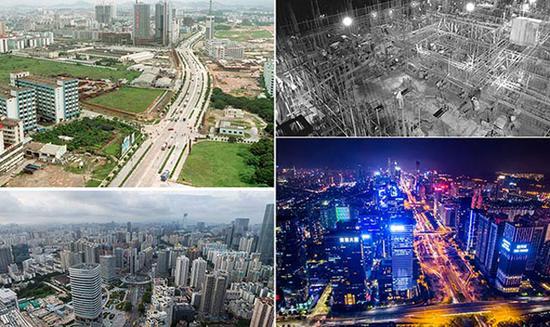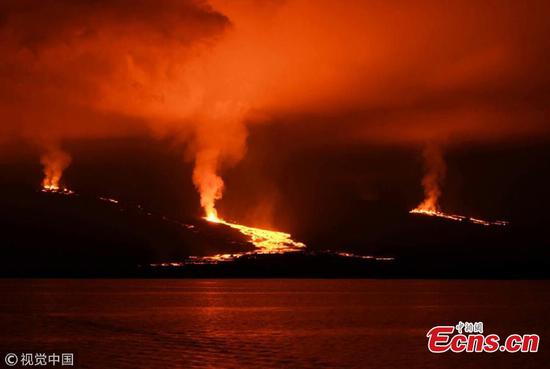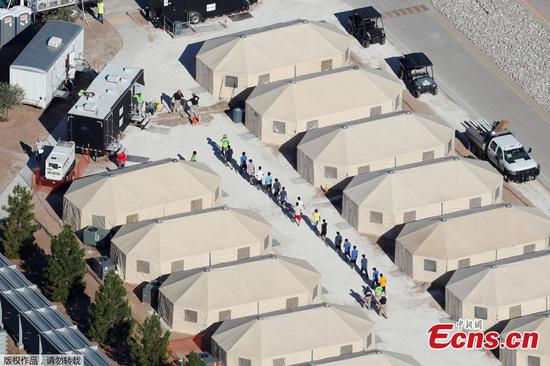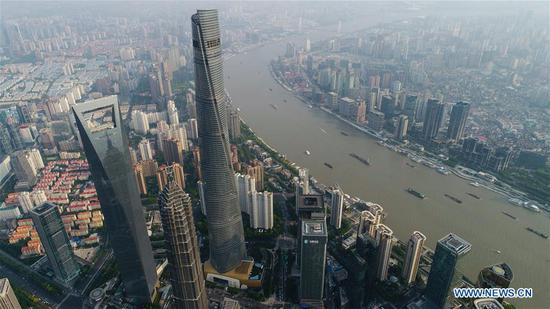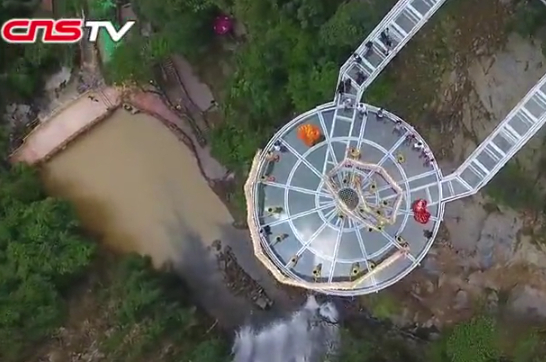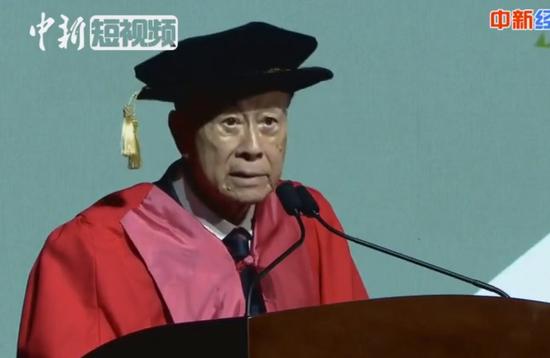![Zhong Sheng, a forest ranger, marks a tree on the Loess Plateau. [WANG HONG/FOR CHINA DALIY]](http://image.cns.com.cn/ecns_editor/transform/20180702/xg7l-fyvsfve7472329.jpg)
Zhong Sheng, a forest ranger, marks a tree on the Loess Plateau. [WANG HONG/FOR CHINA DALIY]
Rising incomes
The Loess Plateau presents a special challenge because its 640,000 square kilometers constitute the largest area of soil erosion in the world.
Even though the land is scarred by thousands of gullies and ravines caused by frequent heavy flooding of the Yellow River, the water drains through the loose soil and evaporates rapidly as a result of the flat terrain.
The cultivation of forests and woodland is intended to prevent erosion, conserve water and improve living standards.
In the past 10 years, 150 hectares in Caijiachuan have been planted with walnut, apple and pear trees, which has raised the forestry rate to 84 percent from less than 10 percent.
Last year, apples were cultivated on more than 18,000 hectares in Jixian county, generating profits of 796 million yuan and helping about 80,000 people in 30,000 households achieve sustainable income growth. Overall, apple cultivation accounted for 80 percent of the combined income of the county's residents.
In 2005, Liu Xinzhu planted 0.93 hectares of apple trees in Jixian county.
Having specialized in varieties such as Red Fuji and Gala, his income is now 10 times higher than it was 13 years ago.
"I can save money now and prepare for my grandchildren's futures. Before, I could barely feed my family," the 67-year-old farmer said.
The family's income is supplemented by Liu's son who lives away from home as a migrant worker, and Liu plans to develop his home into a tourism center, providing accommodation and food for visitors from the city.
"If more people came to buy our delicious apples, our circumstances would improve even more," he said.











